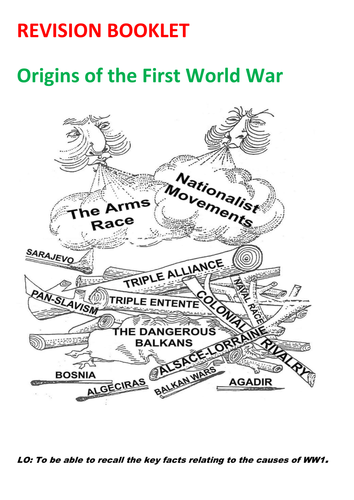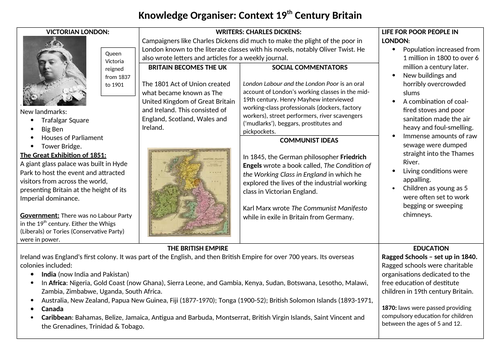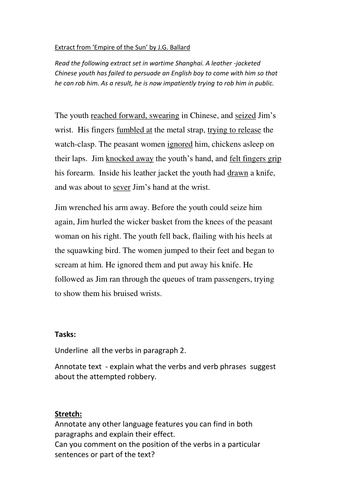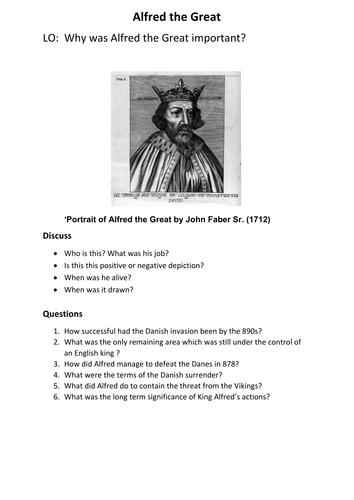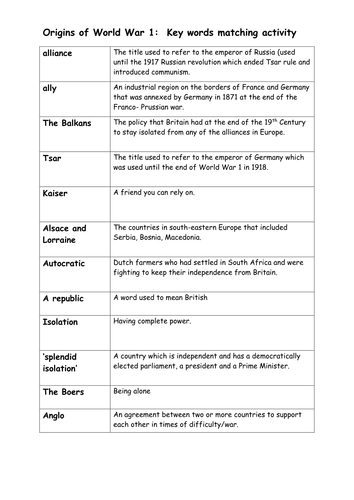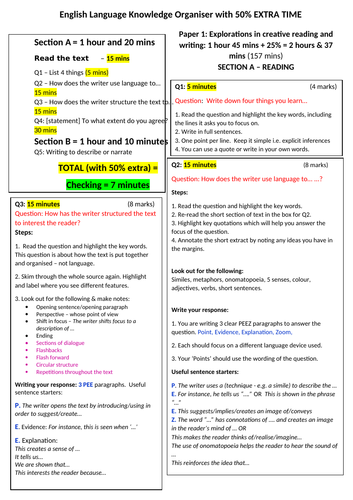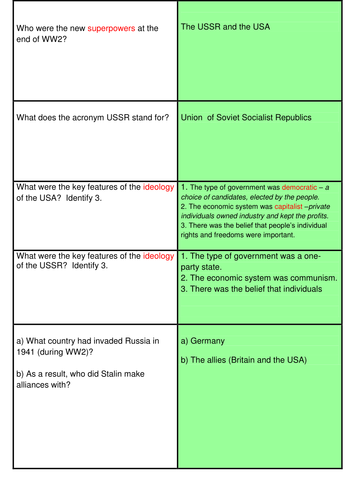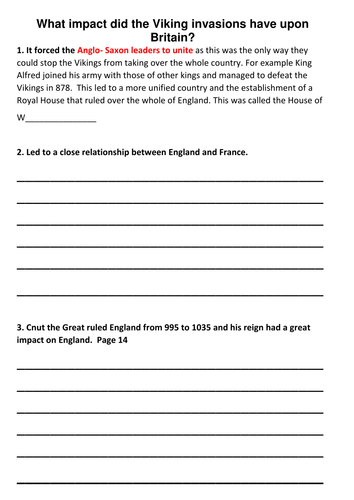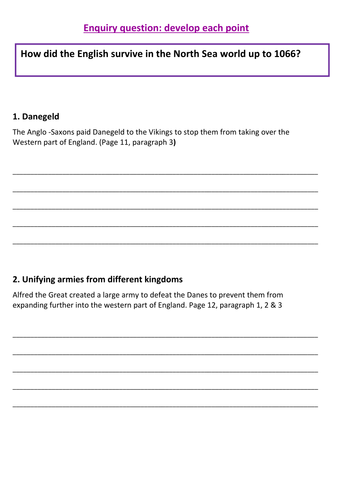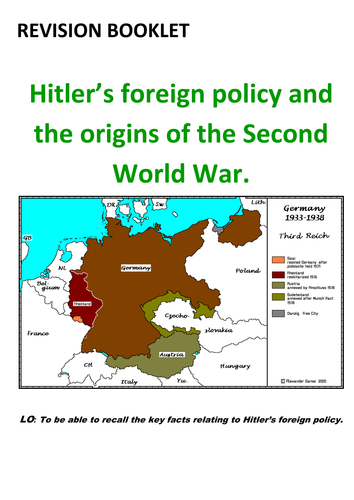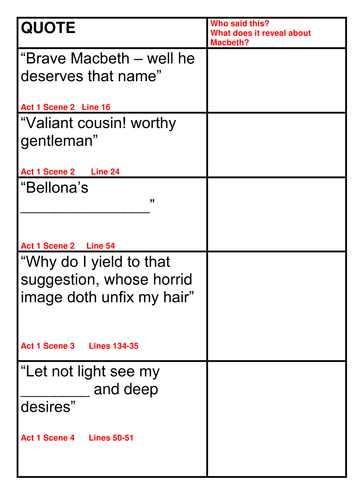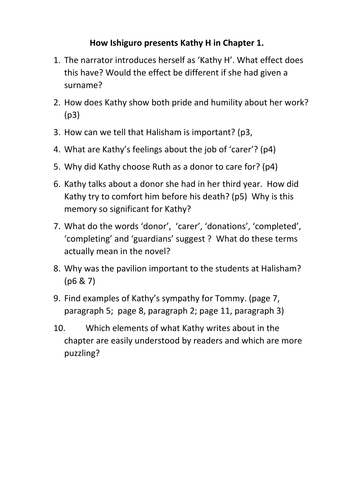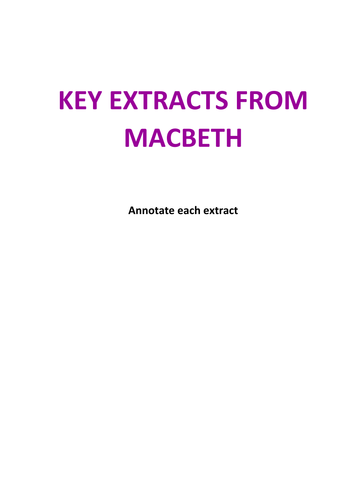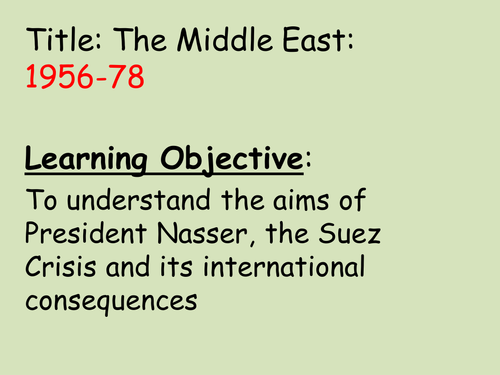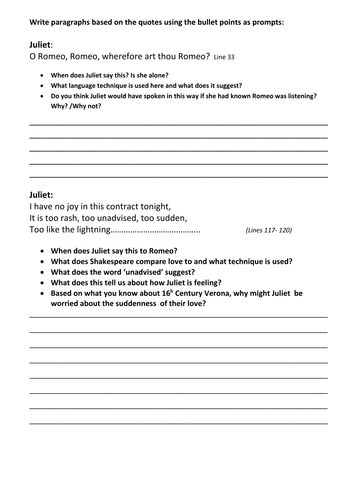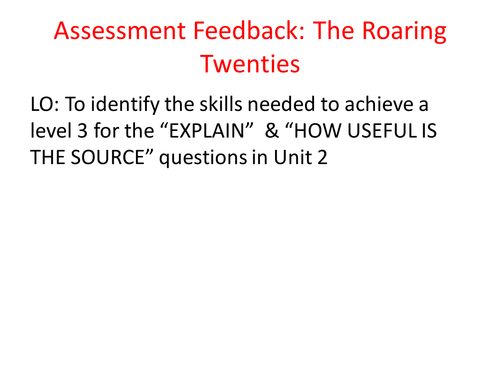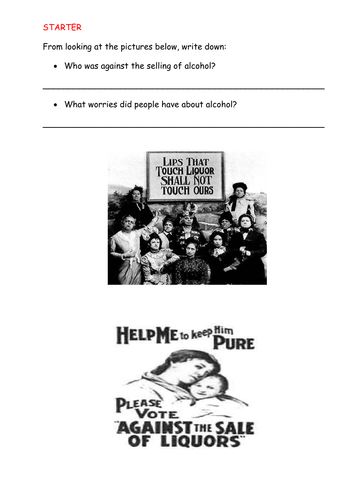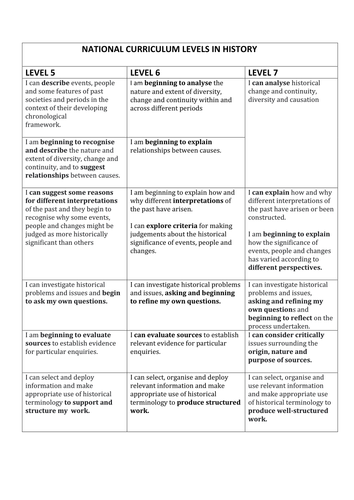
24Uploads
22k+Views
11k+Downloads
All resources

Revision Booklet Origins of WW1
Useful if you are using Textbook: AQA History B: Unit 1: International Relations in the Twentieth Century
Topic 1: Origins of the First World War.

Knowledge Organiser: 19th Century Britain
This knowledge organizer can be used to help the students understand the context to the different 19th Century texts they will study for English Language Paper 2.
It includes brief information on the following:
Victorian London
the Great Exhibition of 1851
Who was governing Britain?
Well-known writers and social commentators
Life for poor people in London
Communist ideas
The extent of the British Empire
A map of the British Empire
Education including ‘ragged schools’.
The Industrial Revolution: slavery, the colonies and workers

GCSE Language: Identify verbs, nouns, adjectives and adverbs
This resource is for the NEW GCSE in English Language and should be used to introduce students to the skill of using subject terminology. It is aimed at helping students identify verbs, (as well as other parts of speech but the focus is on verbs) Paper 1, question 2 (words and phrases) .

Conquered and Conquerors: The Anglo-Saxons and Vikings
This accompanies the Hodder textbook for the new GCSE History course, Unit 2C: Britain: migration, empires and the people. This is examined in paper 2, Shaping the Nation. A worksheet exploring the importance of Alfred the Great.

Origins of WW1 Key Words
Matching activity. Some of it is quite basic. Could be a useful starter for pupils/class who have limited knowledge of historical terminology.

Knowledge Organiser: AQA English Language - Paper 1
These knowledge organisers have been created to support individual studnts who have been allocated ‘extra time’ for their GCSE examination. They follow the AQA English Language exam structure. One of them is for those students who have been allocated 25% extra time and the other is for 50% extra time.
Included is advice on the steps they should follow in the actual exam, active reading strategies and how they should respond to each question. There are sentence starters included for each question, reminders about technical accuracy and the AQA recommended 5-part plan for the writing task.

AQA History B: Origins of the Cold War
These flashcards contain questions on one side and answers on the other. They can be cut out, folded in half and laminated, which the teachers can then use as starters or to review the topic. The flashcards include the Berlin Wall which is part of Topic 5 (Crises of the Cold War). By dealing out the cards and pairing up the students, discussion and clarification of details are encouraged which is useful for the quieter students .

What impact did the Viking invasions have upon Britain?
Unit 2C: Britain: migration, empire and the people. This can be used in conjunction with Chapter 2 of the Hodder textbook. It supports pupils in writing an essay by providing them with a sample paragraph and topic sentences.

How did the English survive in the North Sea world up to 1066?
Unit 2C: Britain: migration, empire and the people. A writing frame to support pupils in writing an essay on this topic and which can be used in conjunction with the Hodder textbook.

GCSE AQA History B: Revision booklet: Unit 1: Hitler's foreign policy and the origins of the WW2
This is a revision booklet which should be used in conjunction with the AQA text book, 'International Relations: Conflict and Peace in the 20th Century' (Topic 3) published by Nelson Thomas.

Macbeth: revising key quotes related to the character Macbeth
This has been created as an aid to KS4 pupils to help them remember key quotes in the play related to the character Macbeth. It has been created with the new GCSE in mind. Pupils are given quotes with a word missing and they are directed to specific scene and line. They complete the quote and make some additional notes on what it reveals about Macbeth.

English Literature: Never Let Me Go: Modern texts
A wide selection of resources which enable students to explore the key characters, Kathy and Tommy as well as some of the most important themes in the novel. These include: isolation, friendship, fear, sex and relationships. There are also activities in which the key symbols (woods, balloons, boat) are examined as well as questions such as to what extent Hailsham is a world of nightmares. Many of the resources are aimed at guiding pupils to specific areas of the text to select quotes, which they can then comment on/ analyse. This scaffolding then supports their analytical writing.

Key extracts from Macbeth
This resource consists of a selection of the most important extracts from the play with a suggested examination (AQA) question at the end of each extract. I have advised my students to annotate each extract as part of their revision. They can use the lists of subject terminology on the last page of the booklet to help them, which require that they look for aspects of language, structure, form and themes in each extract.

AQA UNIT 2 DEPTH STUDIES
Gives an overview of the Suez Crisis
Organises the information
Aim: Understanding of Nasser's aims, the Suez Crisis and consequences

The Roaring Twenties
Review exam question
Question 3: How useful is Source F for studying attitudes in the USA in 1919 towards the League of Nations.

Prohibition
AQA History B Depth studies
LO: To understand the reasons for Prohibition and how to analyse a source

